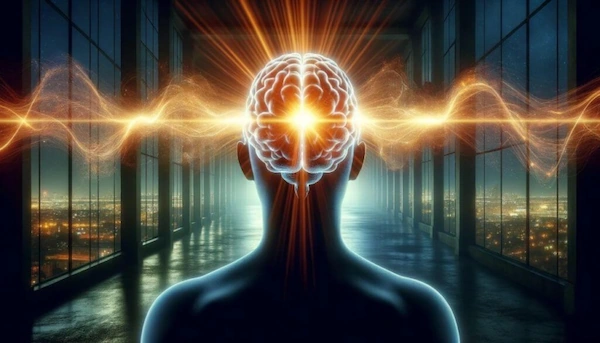
The assertion that true evolution is inner rather than outer resonates deeply with various philosophical and spiritual traditions throughout history. This perspective posits that the external world, often perceived as a concrete reality, is largely a projection of our internal states of being. The confusion arising from an overemphasis on external realities can lead to a dualistic mindset, wherein individuals perceive themselves as separate from their surroundings, thus reinforcing feelings of alienation and chaos.
Inner vs. Outer Evolution
At the core of this discussion is the understanding that human consciousness shapes the world we experience. The philosopher Immanuel Kant famously argued that our perceptions are filtered through innate categories of understanding; thus, what we perceive as reality is not an objective truth but rather a subjective interpretation. He stated, “We can never know things in themselves; we only know them as they appear to us” (Kant). This aligns with the notion that the external world is fictitious in nature—an illusion shaped by our thoughts, beliefs, and emotions.
Moreover, existentialist thinkers like Jean-Paul Sartre emphasized the importance of self-awareness and authenticity. Sartre posited that existence precedes essence; it is through our choices and actions that we define ourselves. He famously declared, “Man is condemned to be free; because once thrown into the world, he is responsible for everything he does” (Sartre). In this light, focusing excessively on external validation or societal norms can distract us from the essential task of self-discovery. When individuals fail to cultivate their inner awareness, they risk creating a chaotic external reality that mirrors their internal disarray.
The Projection of Inwardness
The idea that the external world reflects our inwardness can be traced back to ancient philosophies such as those found in Eastern thought. For instance, Buddhism teaches about “dependent origination”, which suggests that all phenomena arise in dependence upon conditions and are thus interconnected. As Thich Nhat Hanh eloquently puts it: “We are here to awaken from our illusion of separateness” (Hanh). This principle implies that our mental states significantly influence how we perceive and interact with the world around us.
In contrast to this inward focus, Western materialism often emphasizes empirical observation and external validation as pathways to understanding reality. However, such an approach can lead to confusion and reinforce dualistic thinking—where one perceives a rigid separation between self and other, mind and body. As philosopher Martin Heidegger articulated in his work “Being and Time”, modernity’s fixation on technology and objectivity has estranged humanity from its authentic being-in-the-world: “The more we think about technology as a means to an end…the more we forget about Being itself” (Heidegger).
The Necessity of Self-Knowledge
To navigate this complexity effectively requires a commitment to self-knowledge—a process often overlooked in favor of externally imposed laws or societal expectations. The philosopher Socrates famously stated, “Know thyself”, underscoring the importance of introspection as a means to achieve wisdom. Without this inner awareness, any laws or regulations imposed externally will likely be ineffective or even counterproductive.
Spiritual traditions also emphasize this journey inward. Carl Jung’s concept of individuation highlights the necessity for individuals to integrate various aspects of their psyche to achieve wholeness: “Your vision will become clear only when you look into your heart… Who looks outside dreams; who looks inside awakens” (Jung). Jung believed that without confronting one’s shadow—the unconscious parts of oneself—individuals would project these unacknowledged traits onto others or onto society at large.
Furthermore, philosophers like Friedrich Nietzsche have explored similar themes regarding self-overcoming and personal transformation. Nietzsche asserted: “He who has a why to live can bear almost any how” (Nietzsche). This statement encapsulates the idea that understanding one’s purpose or inner motivations provides resilience against life’s challenges.
Cultivating Inner Awareness
To foster genuine evolution within ourselves requires practices aimed at enhancing self-awareness—such as meditation, mindfulness exercises, journaling, or philosophical inquiry—each serving as tools for deeper introspection. Mindfulness practices encourage individuals to observe their thoughts without judgment while cultivating compassion towards themselves and others.
As Eckhart Tolle articulates in his seminal work “The Power of Now”, “Realize deeply that the present moment is all you ever have”. Tolle emphasizes living fully in each moment allows us to break free from past conditioning and future anxieties—a vital step toward inner clarity.
In conclusion, true evolution must begin within each individual before it can manifest outwardly in meaningful ways. Awareness fosters clarity; when we understand ourselves better, we create more coherent narratives about our lives and interactions with others. External laws may provide structure but cannot substitute for genuine self-exploration and understanding.
As we cultivate our inner landscapes through practices such as meditation or reflection on philosophical insights from thinkers like Socrates or Jung—we begin reshaping not only our own experiences but also contribute positively to the collective human experience.
ARE YOU LIVING IMMERSED IN DUALITY?
From a philosophical standpoint, the concept of duality pertains to the notion of two fundamental and antithetical principles that coexist, such as the dichotomy between the mind and the body, the opposition between good and evil, or the contrast between reason and emotion. This dichotomy gives rise to questions concerning the nature of reality and existence, thus prompting debates on whether these opposites are genuinely separate or rather interconnected aspects of a unified whole. From a spiritual perspective, duality is often regarded as an illusion that diverts individuals from experiencing oneness with the universe. Consequently, numerous spiritual traditions encourage transcending such dualistic thinking in order to achieve enlightenment or higher consciousness.
Read the statements below and select those that resonate with you.
Note the number of selected boxes and see the associated profile.
0: Duality doesn’t really belong to you
1-2: There is a little bit of Duality in you
3-4: You are heavily influenced by Duality
5-6: You are fully immersed in Duality

